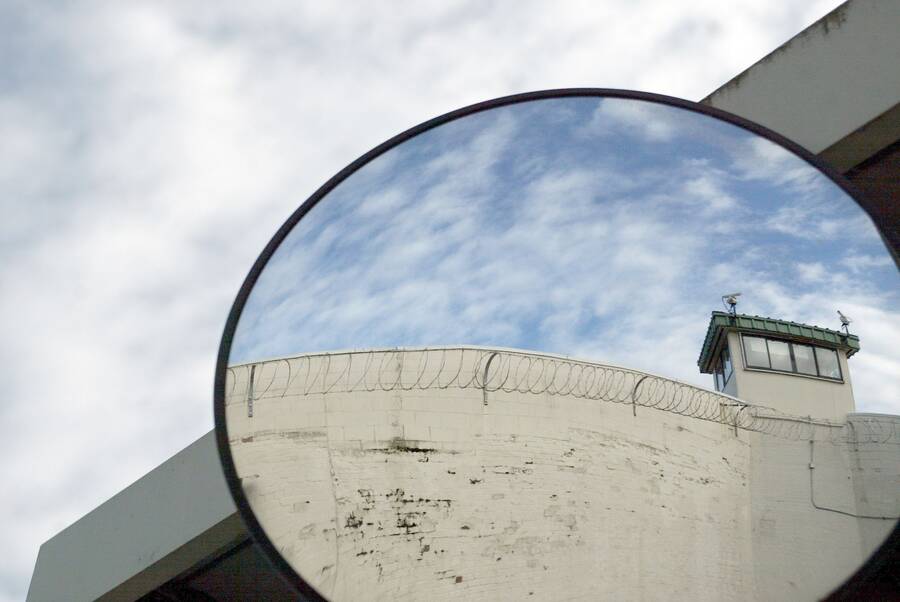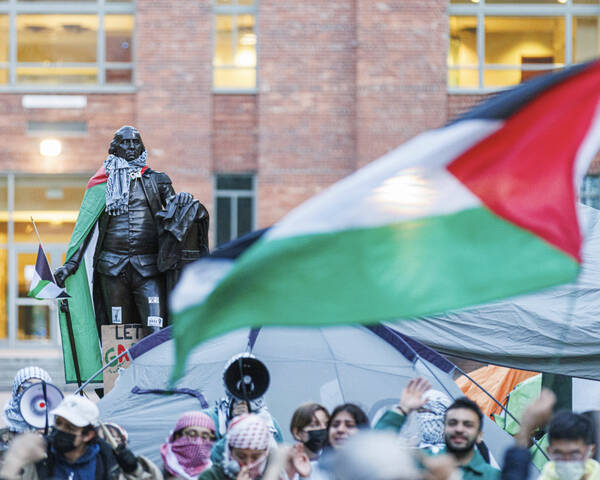Roasting in a Western Washington Prison
Climate change is intensifying the suffering of incarcerated people.

It’s almost midnight. I continue to toss and turn on my thin prison pad of a bed, exhausted from smoldering for days in extreme heat with no reprieve. My little 12-inch fan is working overtime to bring relief. Many other prisoners’ fans have already burnt out; I pray mine doesn’t.
The tier is quiet. There’s just a faint light on to help the guards see as they walk the unit, but even in the half-dark I feel like I can see the heat waves traveling through my six-by-nine-foot, open-barred cell. I turn over again. I can feel the sweat on my sheets. They’re wet, but there’s nothing left to do. I lie in my white boxers wishing the fan could blow harder. Eventually, I doze off, waking up several times throughout the night.
Over the last week, Western Washington has experienced unprecedented levels of heat, reaching over 100 degrees on most days, including a high of 108 in Seattle on July 28th, an all-time record for this part of the country. The prison where I live, the Washington State Reformatory (WSR), located about 30 miles from Seattle, is over a hundred years old; it has poor air circulation and no air conditioning. Prisoners are forced to live in places that are old, overcrowded, and ill-equipped to humanely house human beings—and heat waves stemming from climate change only exacerbate these conditions.
Even as we prisoners suffer from heat exhaustion, the Department of Corrections (DOC) has managed to equip all of the administrative offices with air conditioning, allowing prison officials to sit and work in luxury. Low-level administrators venture into living units to tell prisoners that they understand our pain, as if they are in the struggle with this heat alongside us, only to, minutes later, seek refuge in their comfortable offices. (In response to an inquiry from Jewish Currents, a representative for the Washington DOC said that administrative units in the WSR have no central air, but that “There may be some areas where window A/C units are used.”)
In the prisoners’ living units, the only forms of relief are tiny fans and ice machines—and these can barely meet the demands of the hundreds of prisoners looking to cool themselves by any means available. Access to the ice machines is also heavily policed by the guards, who tell us that we cannot get ice in plastic bags, saying we need a pitcher or bowl to obtain it. Such items must be purchased in the prison’s store, so if you have no money or family support, you get no ice. Many prisoners cannot afford these items, as they have little to no support, or their loved ones don’t have money to spare.
Some guards are also bullying us to wear masks at all times, even though many guards refuse to do so themselves in this overwhelming heat—and even though over 90% of the prisoners here have already had COVID-19 and a majority of us are fully vaccinated, likely making our herd immunity higher than most communities in the US. In the thick of the heat wave, a guard told me to pull my mask over my nose or I’d be written up for an infraction, one that would come with punitive measures. But the guard himself had his mask around his chin, exposing his mouth and nose. At the time, there was no one within 20 feet of me, and I was on a phone, standing between two plastic sheets to shield me from other prisoners. When I didn’t pull up my mask, the guard became aggressive and threatened even more sanctions. The interaction was a clear reminder that the mask mandate is not for prisoners’ protection anymore; instead, the guards use the rule to bully us—and to punish us for requesting access to masks during the apex of the pandemic.
To be fair, prison officials have provided minor forms of relief: they’ve allowed us to wear shorts to the chow hall and flip-flops to the big yard, and have put sprinklers in the yard, along with other small amenities. ( The Washington DOC spokesperson confirmed the use of these measures in an email, and added, “Local weather forecasts have indicated Western Washington is not expected to experience another excessive heatwave, but our facilities are prepared if that should occur.”) However, these measures are nothing in the face of the stifling heat. They don’t alter the fundamentally horrendous conditions in which humans are being housed.
Our experience in this heat wave is a reminder that it’s the poor and marginalized who suffer the most from harsh climate conditions, while those who make billions off the damage they cause to the planet sit in mansions and corner offices with AC, thinking little of those who suffer. Our country’s inaction on both climate change and prison conditions is already creating a crisis for those of us inside. What has to give before we will be heard?
Christopher Blackwell is serving a 45-year prison sentence in Washington state. He is a contributing writer at Jewish Currents and contributing editor at The Appeal and works closely with Empowerment Avenue. He co-founded the organization Look2Justice.

